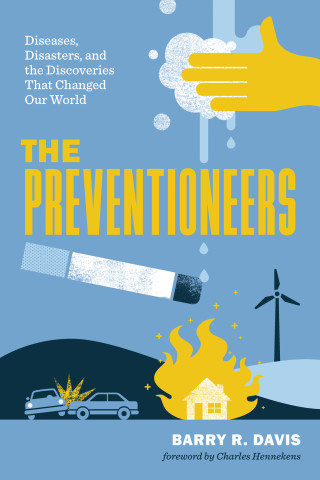
Reviews
An informed, challenging, and readable approach to a vital subject. Despair is in the title, but readers will rejoice in the reading.
Ghaemi is a lucid and eminently reasonable writer.
[On Depression] belongs in libraries serving graduate students of psychiatry, psychology, and, perhaps, philosophy.
Clearly written, with mercifully short chapters for the uninitiated reader, Ghaemi's book elucidates how many of us already feel about the current construction of mood disorders, without having been able to articulate our misgivings.
This is a fun and stimulating read for anyone interested in depression and other mood disorders.
After the narrow confines of most psychiatric writing, it is refreshing to read an author who can quote knowingly from both Seymour Kety and William James and who can competently discuss topics as diverse as the mind-body problem and the relevance for psychiatry of Epicurus and Sufism. The book is a reminder of the rich banquet of conceptual and philosophical issues that are of relevance to our field but rarely make it into the standard literature.
Nassir Ghaemi’s quest to make sense of the split between science and the art of psychiatry, pursued brilliantly in his previous writings, gallops ahead in this book, which ransacks the near empty cellars of post-modernism and reinstates common sense and tradition in a search for meaning in mental health and its disorders in modern life.
Ghaemi’s distinction between ‘depression disease’ and ‘depression nondisease’ is pioneering and will open the eyes of a number of disease-designers who are currently struggling so mightily to classify the illnesses of psychiatry. But Ghaemi, a distinguished psychiatrist of vast clinical experience, will also open many patients’ eyes: Does my kind of depression need medication? If it isn’t depression I have, what’s going on with me? Even more penetrating: My happiness is abnormal? These are not trivial questions, and Ghaemi’s mastery of literature as well as clinical learning makes the lessons go down mighty easily.
Ghaemi’s great aptitude is for the provision of context. If the psychiatric encounter sometimes seems routine—paused at decisions about prescribing—still and always, so Ghaemi reminds us, it is grounded in the humane insights of generations of thinkers dedicated to the well-being of those who suffer. Ghaemi brings wisdom to bear on the series of challenges inherent in the treatment and understanding of depression.
By any measure, this is an important book that goes where thinking about mental illness has never gone. Certainly it will play a role in proving that depression is almost a necessity to actually live and make sense of life. Nassir Ghaemi gives tremendous meaning to my own suffering.
Nassir Ghaemi blends the wisdom of a seasoned clinician, the hard data of rigorous, original research, and the long view of a scholar steeped in humanities. He is an indispensable voice and with this book—among many others—he has found his place among the eminent ranks of modern writers on depression.
Book Details
Preface
Part I: Entrance
1. Lives of Quiet Desperation
2. The Varieties of Depressive Experience
3. Abnormal Happiness
4. The Age of Prozac
5. The Unknown Hippocrates
Part II: Pretenders
6. Postmodernism
Preface
Part I: Entrance
1. Lives of Quiet Desperation
2. The Varieties of Depressive Experience
3. Abnormal Happiness
4. The Age of Prozac
5. The Unknown Hippocrates
Part II: Pretenders
6. Postmodernism Debunked
7. Pharmageddon?
8. Creating Major Depressive Disorder
9. The DSM Wars
Part III: Guides
10. Viktor Frankl: Learning to Suffer
11. Rollo May and Elvin Semrad: I Am, We Are
12. Leston Havens: Holding Opposed Ideas at Once
13. Paul Roazen: Being Honest about the Past
14. Karl Jaspers: Keeping Faith
Part IV: Exit
15. The Banality of Normality
16. Two O'clock in the Morning
Acknowledgments
Appendix: Listening to Despair: An Interview by Leston Havens
Notes
Bibliography
Index






